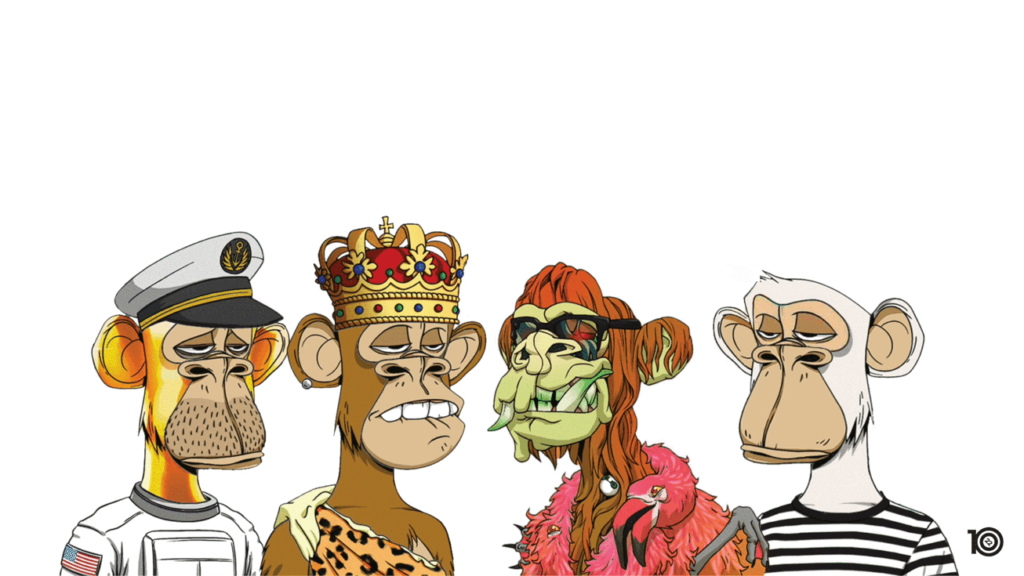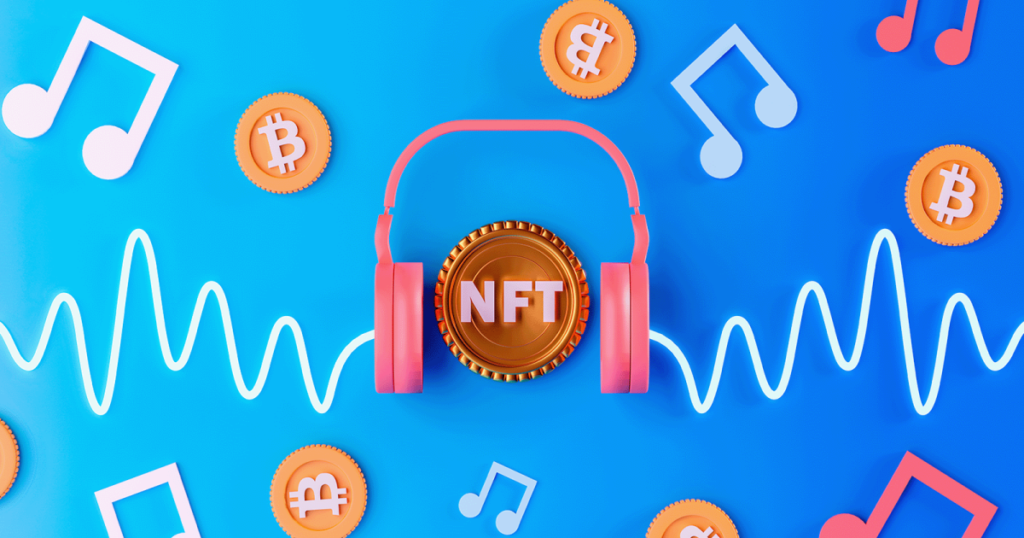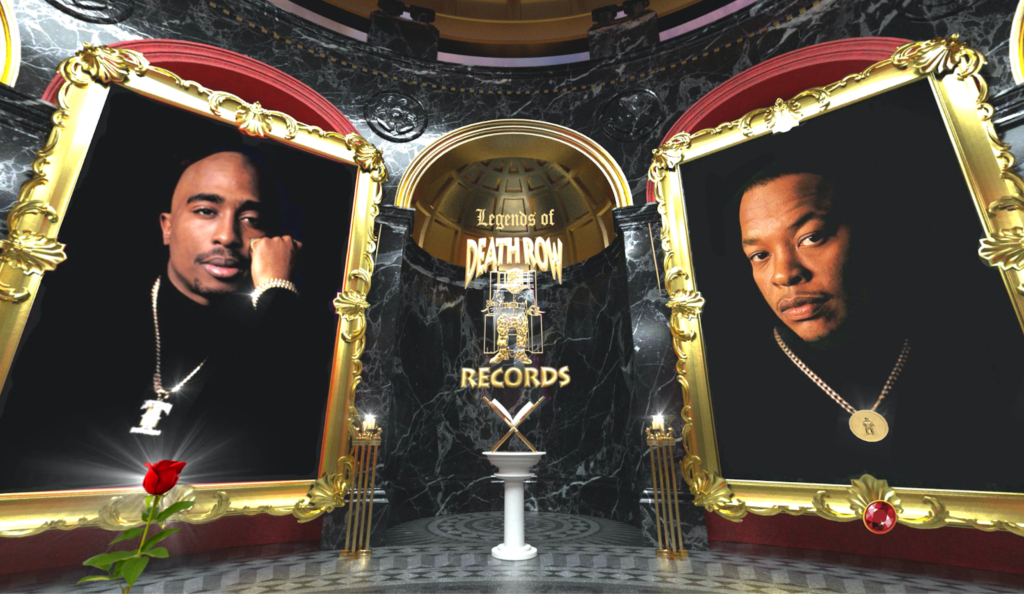NFTs are going through ups and downs these days. There’s speculation about whether they might succumb to the crypto crash or remain resilient. Well, as it turns out, those gravestones were a bit too early, as the cryptocurrency world, as well as NFT, seems to be getting back on track. So, why not discover it a bit more, then?
This article will review the unknown concept NFTs can help with music. And more specifically, the record labels. We will go over the idea of a record label that puts out NFTs with their music, distributes it among crypto fans, and lets your favorite artists be more available for all music fans worldwide.
NFT label is a relatively new concept, but it has been proven time and time again that it can get hyped up like crazy, so definitely do not miss out on that. So, without further ado, let’s dive into the record labels – NFT edition!
What Is NFT Record Label?

Let’s start with some definitions. The NFT record label operates the same way as the classic record label would. It creates music with upcoming artists and markets it to a broad audience; there are talent and music producers in the studio; they create album cover art and talk about other digital assets, like music streaming services. But, where it all breaks down is where you can prove the ownership of the specific item or a piece.
NFTs are being used there to represent the ownership of rights. That way, a record label can freely treat their music business as something completely tangible; where NFT record label works best is with the contracts. You don’t have to draft an intellectual property contract with dozens of pages of legal documents and troubles. Here, you just have to transfer the NFT from one person to another, and that’s pretty much it.
You can connect the ownership of said product with some additional revenue rights, special editions of albums, unreleased tracks, collectibles, and many more. Many artists can be pleased to find that they can now own the music they created, get their music NFTs fixed, and don’t need to worry about anything from the legal point of view—no need for lawyers to get involved. You set the price, and that’s it.
It’s a new way of monetizing NFT projects and should be treated as such. NFT record labels work just like the regular ones, with additional revenue opportunities.
Music NFTs

Music NFTs are common in the NFT world. In most cases, people assume that it’s all about the pictures. Well, it’s not. There are plenty of music-based NFTs, Video NFTs, and everything you can digitalize can become an NFT.
So, how does it work? Well, a music NFT can be connected to a particular song, album, or even a video clip. That way, the owner of an NFT has complete control over the usage of this particular intellectual property.
It’s important to remember that buying a music NFT is not like getting your music from iTunes. You can listen to it, of course, but it would be like instead of buying a song by Snoop Dogg, you would purchase the rights to sell Snoop Dogg’s song. You don’t believe the track; you buy the right to the way.
You can get royalties this way, sell t-shirts with lyrics, and do whatever was inscribed into the NFT. So, it’s not a music streaming service, but rather – high value (but for the up-and-coming artists from some lo-fi genre as well) right to ownership to said piece of music.
What’s the Difference Between an NFT Record Label and a Regular One?
So, what’s the difference between an NFT record label and a regular one? Couldn’t they just add the NFT aspect to it and become one? Well, yes, but it’s not that simple. It’s all about the ownership and distribution model that said record label is trying to promote.
With access to crypto markets, music labels can now reach a larger audience and explore new business opportunities beyond just creating music. It’s now easier than ever to commercialize different songs, albums, and royalties with a simple NFT transaction. That opens up a new world of possibilities for secondary market sales and people who want to view music NFTs as digital artwork.
Here are the most common differences between the two:
Rights
The main difference is the ownership of music. In most cases, the labels are controlling the artist’s music. They have exclusive rights to distribute and sell the music in exchange for royalties, wages, and such. Some artists have come out against these practices and deemed them unfair.
With NFT Labels, artists can tokenize their music and rent out their tokens to the labels while remaining the sole property of the songs and albums. They can also monetize everything connected to the songs and albums, like artwork, and control how fans interact with their music.
Monetization
The monetization is the crucial aspect. As we have mentioned before, in most cases, traditional labels kept checks and balances over the artists throughout history. Nowadays, partially thanks to all the fan communities and artists who create NFTs that they lease to studios, it can be much easier for artists to take control of their careers.
In traditional labels, revenues were split between artists and the studio, with the lion’s share going to the guys on top, pulling the strings. With NFT labels, the music is tied to the NFTs so that the artists can exclusively own it. Then, those tokens can be sold for profit.
Distribution
So, how do the traditional vs. NFT labels solve the music distribution problem? Are they selling/buying tracks? Is it something like Spotify streams? Do they even need an audio file? Well, there are a few misconceptions that we need to straighten out.
First, when it comes to traditional labels, they’re usually done the conventional way. Titles sell CDs and vinyl records and stream music on multiple platforms and radio stations. NFTs allow for a similar process using blockchain platforms and P2P transactions. This includes offering exclusive content and tracks accessible only to individuals holding specific tokens.
Technology
And finally, we have the technology aspect of both these distribution platforms. Traditional labels typically leverage the available tools and media within their industry to promote their work. They create music in the studio and send their artist for interviews on TV, radio, or YouTube.
NFT labels are focusing more on the blockchain aspect of it all. They spread the music through the blockchain and tokens, give extra access to the people who own them, and grant the fans more direct access to the artists. It’s a different approach to technical aspects of music promotion and enjoyment than traditional media.
How Can You Get Music NFTs?
So, now that we know everything about the NFT record labels and how they differ from the traditional ones, let’s go over the concept of NFT as music. How can this be created, and what steps are necessary to achieve it? Well, here are some tips for you:
- Digital Wallet – the first thing you need to acquire in order to create an NFT version of your music is the digital wallet; we recommend getting the most obvious ones, like MetaMask or Trust Wallet. That way, you will be able to interact with different NFT marketplaces.
- Create Tokens – The next thing you’ll need to do is create NFT tokens you will sell on NFT marketplaces. It’s a process called minting an NFT, which usually involves paying some amount of crypto to put your art, as music artists, on the blockchain;
- NFT Marketplace – next, you need to go to the NFT marketplace of your choosing in order to put your NFTs up for sale. Using popular platforms is recommended, as there are many counterfeited ones. We suggest the general NFT ones like OpenSea or Rarible or those specializing in NFT music like Catalog or OneOf. Be sure to do the due diligence before selecting your NFT marketplace.
- Put Your Tokens up for Sale – after that, you only need to put your tokens up for sale, and you can join the wonderful world of NFT music artists; it’s important to note that you should definitely add all the terms and conditions that come from owning the token you’re selling; whether it’s simply the right to stream or join digital or real-life concerts or are there any additional perks that come from this kind of ownership like royalties and such;
- Promote Your Stuff – and finally – do some marketing! Promotion, interviews, X platform, Reddit – everywhere people talk about the NFTs – you should be there! In order to make people interested in your music, you need to convince them that it’s a good idea to do so!
The Best NFT Record Labels
So, now that we know even more about the concept of NFT record labels and music itself, let’s go over the examples of such practices. Of course, traditional record labels can also become NFT labels without losing the first part of their business. Whether it’s selling concert tickets to real-life or digital events or sharing music through tokens or on streaming platforms – it’s all about utilizing the digital asset you have in the best possible way.
Whether it’s in the NFT space or a more conventional setting, it all revolves around the musical creations of talented artists, enriching our lives. NFT holders also offer significant potential for smaller artists. Minting your NFT does not mean that only the buyer can have complete ownership of the new album or whatnot. It usually means additional access to the music instead of representing ownership, like in some traditional methods, e.g., contracts or other types of deals.
NFT grants us new abilities, and it’s a unique asset that should not be underestimated. With that in mind, let’s go over some labels that decided to add the NFT aspect to their portfolio or create an entire NFT world of possibilities from scratch.
Death Row Records

Who has not heard about the Death Row Records? It’s one of the most famous record labels in the music industry. Now, it grants exclusive access to new and unreleased material, with blockchain technology leading the way.
As the famous Snoop Dogg, who bought the label and – is a significant crypto enthusiast of his own accord – Death Row will become the biggest NFT record label in the world. We just need to wait for what they can bring to us. But – let us state one thing clearly – it will definitely be something big!
As Dogg said: We will be putting out artists through the metaverse… Just like we broke the industry when we were the first independent to be paramount, we want to be the first major in the metaverse!
Hume

Hume, on the other hand, is something completely different. It’s also based on the concept of the metaverse. They refer to their artists as “Metastars.” They have the whole aesthetic that goes with this concept, and all the visuals and music are within the chill vibe they provide. The first musician that came out of this was Angelbaby, but plenty are coming up, so if you like this kind of aesthetic – definitely give them a shot!
Moonwalker FM

Finally, we have MoonwalkerFM. It’s the kind of label that you would think of when discussing NFTs. They are all about lo-fi music, chill instrumentation, and the NFT ecosystem. Their goal is to put out the music that will then be spread over the blockchain, giving the fans additional ways to not only access the music in a new way but also – earn some streaming royalties this way. It’s like a stock market but for music! The greatest asset of MoonwalkerFM is its music, and that is where its focus lies!
What Is NFT Record Label – Conclusion

So, if you were looking for answers to the “How does the NFT record label work?” – we hope that we have provided you with some answers.
Music NFTs can fix a serious issue in the music industry nowadays, which is – the real ownership of the product. It cuts the giant problem that was for years between the music producer and artists, which is – who actually owns the music here? With NFT music labels, you can easily tokenize any piece of art you want with no issues whatsoever. So, if you want to go for your very own artist’s path – it’s the way to go for sure!